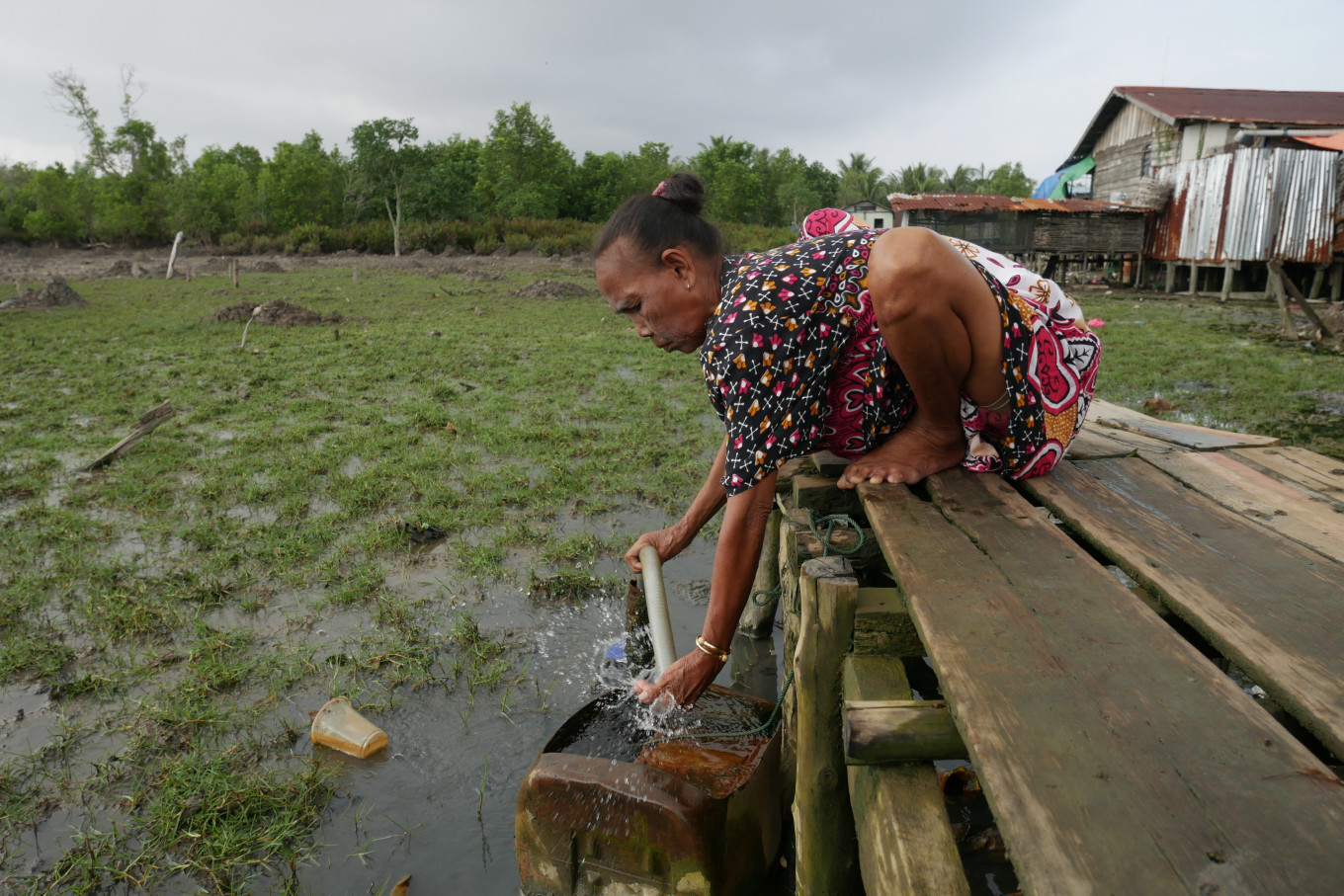Popular Reads
Top Results
Can't find what you're looking for?
View all search resultsPopular Reads
Top Results
Can't find what you're looking for?
View all search resultsProtecting groundwater
Enforcement of the regulation that restricts groundwater extraction in Jakarta has been lax, allowing people who extract groundwater for daily consumption to go unpunished.
Change text size
Gift Premium Articles
to Anyone
I
n the coming years, households and businesses will have to obtain a government permit before extracting groundwater beyond a certain amount, part of a move to conserve the vital resource and protect cities from land subsidence.
In a regulation that will come into effect in 2027, the Energy and Mineral Resources Ministry will require all households and legal entities extracting at least 100 cubic meters of ground or river water per month to apply for a permit.
The regulation aligns with a ministerial decree outlining standards for groundwater usage approval and that aims to restore Jakarta’s groundwater levels and reduce land subsidence. The city is currently sinking from massive groundwater extraction, although at a slower rate than in the past.
According to the regulation, permit applicants will need to provide a detailed explanation of their groundwater extraction and usage plans, along with proof of land ownership. They also need to commit to digging infiltration wells to catch and store rainwater, ramping up the efforts to restore the groundwater supply.
The restriction will only apply to households that extract a large amount of groundwater, such as those that own swimming pools, smallholder farmers who operate outside of the existing irrigation system, public facilities, government institutions and noncommercial tourism and public spaces.
Typical households with no swimming pool consume up to 30 cubic meters per month, according to calculations by authorities and experts, and are therefore exempt from the new regulation.
The government’s move to protect groundwater not only in Jakarta but also across the country deserves appreciation. But as is the case with other regulations, implementation is always challenging. The problem for the groundwater extraction policy will be the difficulty of monitoring all permit holders across the nation.
Jakarta, in fact, has a similar policy already in place that bans groundwater extraction in areas already covered by piped water service from the Regional Drinking Water Company (PDAM). However, enforcement of the regulation has been lax, allowing people who extract groundwater for daily consumption to go unpunished.
Experts have also warned that extra red tape surrounding groundwater usage might encourage corruption, increasing the risk of bribery from officials who have the authority to issue permits for groundwater seekers.
Restricting groundwater extraction should be followed by the provision of a proper clean water management system, especially in big cities where certain parts of the community have no access to clean water. Such a system will require water treatment facilities to process water from various sources such as lakes and rivers into clean water that is safe for human consumption.
Indonesia is blessed with thousands of lakes and rivers, but many of them are heavily polluted from domestic, agricultural and industrial activities. It will take extra effort to put a halt to the pollution and advanced technology to normalize the water quality.
Proper management also means installing thousands of kilometers of pipes to distribute clean water to houses, especially to the poor. Less than a quarter of Indonesians have access to clean piped water, according to a 2021 data from Statistics Indonesia (BPS), forcing those without access to dig up the ground to find water.
The poor are the most vulnerable to the impacts of the lack of access to clean water. They may resort to highly polluted river water for daily consumption, putting their health at risk.
Restricting the large-scale extraction of groundwater is a step in the right direction to stem the loss of the precious liquid from underground. But the government needs to be serious in following the policy by improving clean water management.
Otherwise, we will only make holes in a boat that we are on. We would sink ourselves in no time.











